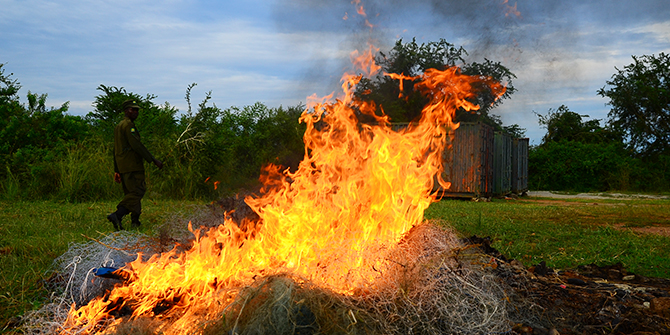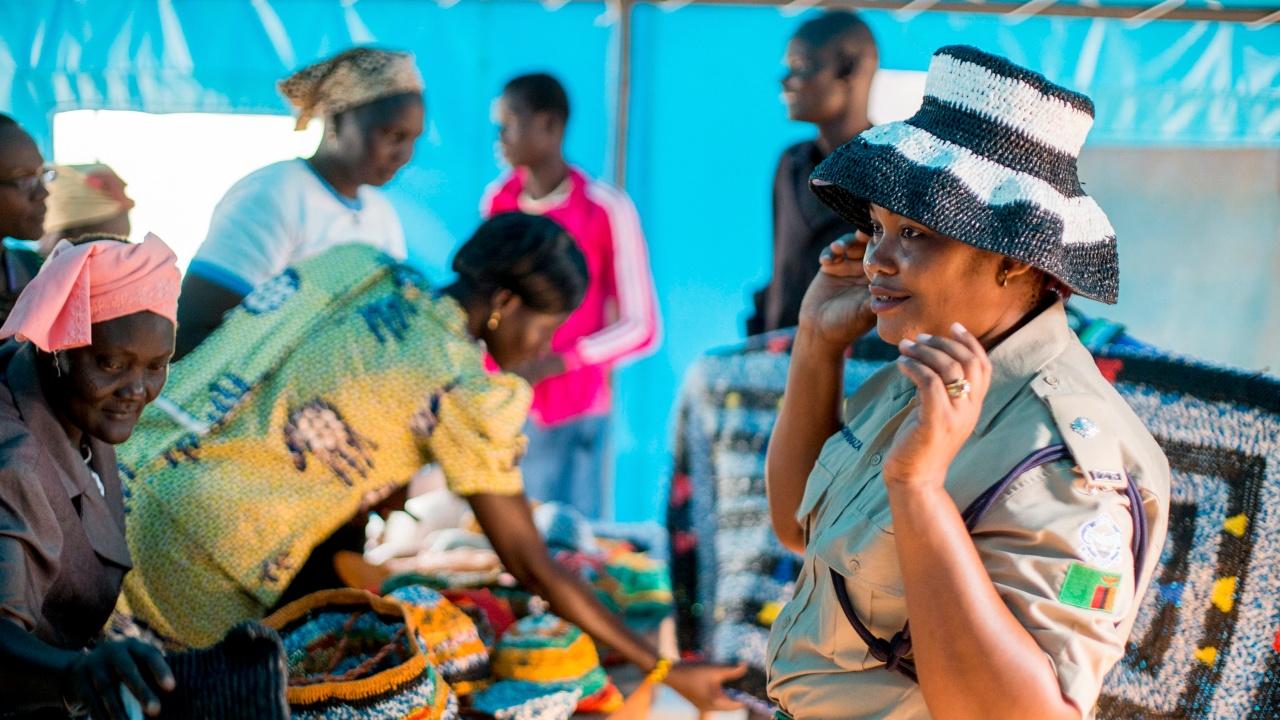In the first of two articles commemorating Algeria’s half-century of independence from France, LSE’s Nabila Ramdani argues that it is time France faced up to its brutal treatment of Algerians during the colonial period. This post originally appeared in the National newspaper.
This month marks 50 years since Algeria won independence from France – an anniversary that should commemorate not only the fulfilment of the democratic wishes of the biggest country in Africa and the Arab world, but the pain and suffering of one of the bloodiest colonial wars in history.

In the summer of 1962, 90 per cent of Algeria’s then electorate – almost six million adults – voted to separate from the state which had ruled over them for 132 years. On 5 July, President Charles de Gaulle pronounced that Algeria was an independent country and that, officially at least, the violence and hatred were over.
This deceit overlooked the fact that eight years of intense warfare had killed one-and-a-half million Algerians. An additional two million were uprooted from their homes, many more were wounded, and the killing and maiming would continue for many years to come both in the North African country and in France.
But it seemed that the heady ideal of self-determination had won through, at last. This should have meant that French colonial masters had moved on from viewing Algerians as little more than slaves.
If you were to attend one of the few Paris exhibitions centred on the anniversary of independence, as I did recently, you might well end up thinking the complete opposite. Incredible as it may sound, France’s National Army Museum in Les Invalides – the resting place of Napoleon Bonaparte and one of the top tourist landmarks in the capital – is “marking” the 13 decades plus of French colonial rule in Algeria. Wandering around it, you might be forgiven for thinking that “celebrating” would be a better description.
Not only is “Algeria 1830-1962” a commemoration of a regular Gallic army putting ill-disciplined, irregular Arab natives in their place, but it focuses on the terrorist methods used by Algeria’s National Liberation Front (FLN) to achieve its aims. Yes, there are references to the extreme torture and other barbaric methods used by the French, but they still emerge as infinitely more honourable than the Algerians.
A sense of great loss certainly persists in France to this day. By the early 1960s, there were about a million European settlers in Algeria, including Italians and Spaniards, as well as the French, and many viewed their lifestyles under the Mediterranean sunshine as utterly idyllic. Not only did they enjoy the cheap estates and servants offered by a colonised Arab country, but they felt as much a part of France as residents of Paris and Marseilles.
These so-called pieds noirs (black feet) were forced to move to impoverished circumstances back in Europe. At least 50,000 “harkis”- indigenous Algerians who had been very loyal to France – were murdered by the new Algerian regime, and those who escaped to the motherland were treated with hatred or indifference.
Fifty years is not a long time in the development of displaced communities. The bitterness harboured by those who felt let down by the “traitor” De Gaulle acutely lingers, while right-wing, nationalistic French people are still smarting at the loss of such a prestigious enclave.
This anger manifests itself not just in inappropriate Paris exhibitions, but in the treatment of ordinary Algerians who emigrated to France purely for economic reasons. Many initially ended up in temporary workers’ camps on the outskirts of major cities that were later made permanent in the form of low-cost, isolated housing estates. These are the same projects where second and third generation Algerians now experience discrimination in everything from employment to housing, and in religious expression.
When rioting broke out across the “immigrant” estates in 2005, it was no coincidence that the then prime minister, Dominique de Villepin, invoked Algerian War legislation to stamp it out. Curfews and paramilitary patrols were used against Arab “troublemakers”, just as they had been back in the 1950s and 1960s.
One only has to note the one-in-five voters who supported Marine Le Pen, leader of the overtly anti-Muslim National Front (FN), in this year’s presidential election. Her party was founded as a vehicle for her father, the former paratrooper Jean-Marie Le Pen. Not only has he been implicated in the torture of Algerians during the war, but he has been convicted of a range of racist and anti-Semitic crimes. A National Front parliamentary election poster in 2009 depicted a map of France covered in the Algerian flag with minarets in the shape of missiles emerging from it, and featuring a woman wearing a veil.
This sense of jingoism was seized upon by former president Nicolas Sarkozy as he did everything he could to stigmatise Arabs, with measures ranging from the niqab ban to a bid to require the labelliing of halal meat. A cynical “national identity” debate was introduced, allowing small-minded nationalists to make vile comments about Algerians who had the audacity to settle in a country which had dominated theirs for more than a century. Mr Sarkozy paid the price for such gutter politics when he was ejected from office after one term, but there are many who supported his cynicism.
Rabble-rousing aside, establishment France is likely to remain silent as Algerians recall this month’s anniversary. Street demonstrations have been banned, meaning that quiet contemplation of the victims of the conflict will replace public expressions of collective grief. Instead we will be left with incongruous exhibitions such as “Algeria 1830-1962” – ones that describe what went on during this dark period in graphic detail but somehow miss the point of what it really signifies.
Follow Nabila Ramdani on twitter @NabilaRamdani or visit her website http://www.nabilaramdani.com/.





